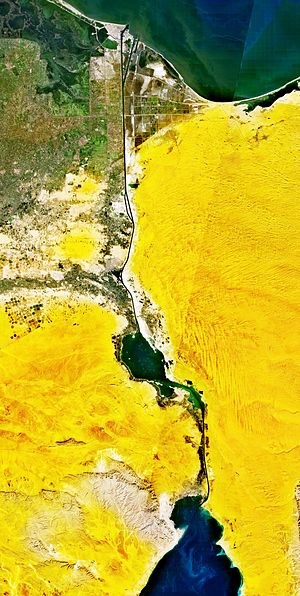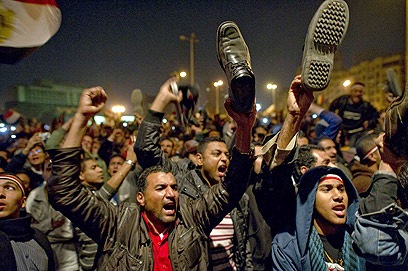| Iran nuclear plant suffers setback | ||
Tehran announces plans to remove fuel from Bushehr reactor while it carries out "technical work". Last Modified: 26 Feb 2011 14:54 GMT | ||
The decision, announced on Saturday, comes just months before the facility, which is located in the southern city of Bushehr, was scheduled to go into operation to generate electricity. "Based on the recommendation of Russia, which is in charge of completing the Bushehr atomic power plant, the fuel inside the reactor core will be taken out for a while to conduct some experiments and technical work," Ali Asghar Soltanieh, Iran's envoy to the International Atomic Energy Agency (IAEA), said. "After the experiments, it will again be installed in the core of the reactor," he said in comments to the ISNA news agency, but he did not specify when the experiments would be completed. Iran has given no reason for the unexpected fuel unloading, but there has been speculation that it could be connected with the Stuxnet computer worm that infected Iranian industrial software and facilities last year. in January, The New York Times reported that the computer worm was created by US and Israeli intelligence services to sabotage Iran's nuclear ambitions. 'Game over?' While Tehran insists its nuclear programme is for purely civilian purposes, the West accuses it of using it as cover for building weapons, Iran has previously admitted that the Stuxnet worm infected the Bushehr reactor, although Nasser Rastkhah, the head of Iran's nuclear safety system, said that the worm had "no effect on the controls of the Bushehr atomic plant". But Ghanbar Naderi, a journalist with the state-run Iran Daily newspaper, warned the Stuxnet worm could cause a nuclear disaster. "This is about a dangerous move by the West - I'm talking about the United States and Israel [which are] trying to sabotage Iran's nuclear programme and the launch of its first nuclear power plant," he said, speaking to Al Jazeera from Tehran. "Remember, the Stuxnet computer worm has a code that can help control the nuclear power plants operations remotely. "If it falls into the hands of someone who doesn't like success or achievement in our nuclear programme it could trigger a nuclear disaster similar to the one in Chernobyl." Western analysts have speculated on how damaging the fuel removal could be for Iran's nuclear programme. The New York Times quoted David A Lochbaum, a nuclear engineer at the Union of Concerned Scientists, as saying: "It could be simple and embarrassing all the way to 'game over'." But he also noted that unloading a newly fueled reactor was "not unprecedented". The Bushehr plant has suffered a series of setbacks in its more than three decade-long history, but was finally "launched" by Moscow in August last year and was due to begin generating electricity in April. Uranium search Separately, the Associated Press news agency reported an intelligence report "from an IAEA member country" as saying that Iran is expanding a covert global search for raw uranium. It recorded a secret visit by Akbar Salehi, Iran's foreign minister, in January to uranium-rich Zimbabwe in a search for the metal. A confidential report by the UN's nuclear watchdog said that Tehran continues to stonewall its attempts to follow up on the information. The IAEA report also said that conversion work of uranium ore to the gas from which enriched uranium is made remained idle for the 18th month, indicating a possible shortage of the raw material on which Tehran's nuclear programme is built on. Iran denies any uranium shortage, but the intelligence assessment is line with international assessments that Iran's domestic supplies cannot indefinitely sustain an expanding nuclear programme. Tehran is under four sets of UN sanctions for its refusal to stop uranium enrichment, which can create both nuclear fuel and fissile warhead material. |
Labels
Abubakar Siddique
(1)
Afganistan
(2)
Afghan government
(1)
Afghanistan
(9)
Africa
(3)
Al Jazeera English
(1)
Al Qaeda
(1)
al-Qaeda
(4)
Al-Qaeda Organization in the Islamic Maghreb
(1)
Alex Jones
(1)
Ali Asghar Soltanieh
(1)
Aljazeera
(3)
American Independent Party
(1)
Anderson Cooper
(1)
Arab people
(1)
Arab World
(2)
Asia
(1)
Asian NATO
(1)
Associated Press
(2)
Baghdad
(1)
Bank
(1)
Barack Obama
(6)
Ben Ali
(1)
Ben Wedeman
(1)
Benghazi
(1)
Benjamin Netanyahu
(1)
BlackBerry Messenger
(1)
Blog
(1)
Bushehr
(1)
Bushehr Nuclear Power Plant
(1)
Cairo
(6)
Catherine Ashton
(1)
CBS News
(1)
Central Intelligence Agency
(1)
CNN
(6)
Council of Europe
(1)
Day of Ashura
(1)
Defenders of Human Rights Center
(1)
Director of National Intelligence
(1)
Doha
(1)
Egypt
(14)
Egyptian General Intelligence Directorate
(1)
Egyptians
(5)
Elections in Iraq
(1)
Enriched uranium
(1)
Fatah
(1)
French people
(1)
Gabrielle Giffords
(1)
George Wallace
(1)
Google
(1)
Government
(3)
Government of Spain
(1)
Greek mythology
(1)
Hamid Karzai
(1)
Hillary Rodham Clinton
(1)
History
(1)
Hosni Mubarak
(11)
Human rights
(1)
Human Rights Watch
(1)
India
(1)
Indigenous People
(1)
International Atomic Energy Agency
(1)
International Security Assistance Force
(1)
Iran
(12)
Iranian Revolution
(1)
Iraq
(6)
Iraq War
(3)
Islam
(1)
Islamabad
(2)
Islamism
(2)
Israel
(7)
James R. Clapper
(1)
Japan
(1)
Japanese domestic market
(1)
Joe Biden
(3)
Kabul
(2)
Kabul Bank
(1)
Kandahar
(1)
Kings of Brega
(1)
Kuwait
(1)
Lahore
(1)
Law Society
(1)
Lebenon
(1)
Libya
(1)
Mahmoud Ahmadinejad
(2)
Mediterranean Sea
(1)
middle east
(14)
Military
(2)
Mitsubishi
(1)
Mohamed Ghannouchi
(1)
Mohammad Reza Pahlavi
(1)
Monzer al-Kassar
(1)
Muammar al-Gaddafi
(1)
Mubarak
(1)
Murder
(1)
Muslim
(1)
Muslim Brotherhood
(2)
National Defense University
(1)
National security
(1)
New York Times
(3)
Nicolas Sarkozy
(1)
Nissan
(1)
Nissan Motors
(1)
Noam Chomsky
(1)
Nobel Peace Prize
(1)
Non-governmental organization
(1)
Nuclear
(1)
Nuclear power
(1)
Nuclear program of Iran
(3)
Obama
(1)
Oil
(1)
Omar Suleiman
(3)
Omar Zakhilwal
(1)
Osama Bin Laden
(2)
Pakistan
(10)
Parliament
(1)
Poker
(1)
Police
(1)
Politician
(1)
President
(1)
President of Afghanistan
(1)
President of Egypt
(1)
Prime Ministers
(1)
Protest
(4)
Provisional government
(1)
Revolutionary Armed Forces of Colombia
(1)
Saeed Jalili
(1)
Salam Fayyad
(1)
Saleh Muhamed al-Mutlaq
(1)
Saudi Arabia
(1)
Shia Islam
(1)
Shirin Ebadi
(1)
Social Sciences
(1)
Spain
(1)
Sport utility vehicle
(1)
Steve Watson
(1)
Stuxnet
(1)
Suez Canal
(1)
Suicide attack
(1)
Taliban
(6)
tea party
(1)
Tehran
(3)
Thailand
(1)
The Guardian
(1)
The Washington Post
(1)
Tony Blair
(1)
Tucson Arizona
(1)
Tunisia
(4)
Twitter
(1)
United Nations
(3)
United States
(22)
United States Air Force
(2)
United States armed forces
(2)
United States House Permanent Select Committee on Intelligence
(1)
United States Intelligence Community
(1)
United States Navy SEALs
(1)
Unmanned aerial vehicle
(1)
Video camera
(1)
War Crimes
(1)
War on Terror
(1)
White House
(3)
Wikileaks
(1)
Zine El Abidine Ben Ali
(2)
Video Report from Afghanistan: How the U.S. Counterinsurgency Campaign Is Failing

At a conference in Portugal over the weekend, NATO countries agreed to hand over responsibility for Afghanistan’s security to Afghan forces by the end of 2014. In his speech, President Obama claimed there has been significant progress in the fight against the Taliban. But reports from the ground in Afghanistan question these upbeat claims about the ongoing NATO operation. Last spring, NATO launched a major operation in the Taliban-held town of Marjah. The offensive was supposed to showcase America’s new counterinsurgency campaign and demonstrate that victory is still possible. Independent filmmaker Rick Rowley of Big Noise Films recently traveled to Marjah and discovered the counterinsurgency campaign in crisis. [includes rush transcript]
CNN.com - WORLD/Middle East
Middle East : a NewsXS service feed
JPost.com - Middle East News
BBC News - Middle East
JPost.com - Israel News
Afghanistan News
Iraq News
Israel and Palestine
Total Pageviews
Blog Archive
-
▼
2011
(43)
-
▼
February
(11)
- Iran nuclear plant suffers setback - Middle East -...
- Iran Sends Ships to Suez Canal: Amid Revolts, a Th...
- US spy chief: Muslim Brotherhood secular - Israel ...
- Where are the moderates? - Israel Opinion, Ynetnews
- It's not radical Islam that worries the US – it's ...
- Tens of thousands demand change in Cairo's Tahrir ...
- Afghan elite 'plundered $900m' from leading bank -...
- World reacts to Mubarak's announcement - CNN.com
- Tunisia's new government purges police leadership ...
- U.S. and the Middle East Conflict
- Google exec Wael Ghonim missing in Egypt amid prot...
-
▼
February
(11)
Delicious
Search This Blog
Sunday, February 27, 2011
Iran nuclear plant suffers setback - Middle East - Al Jazeera English
Wednesday, February 23, 2011
Iran Sends Ships to Suez Canal: Amid Revolts, a Threat to Egypt? - The Middle East in Revolt - TIME
 Image via WikipediaIran Sends Ships to Suez Canal: Amid Revolts, a Threat to Egypt? - The Middle East in Revolt - TIME
Image via WikipediaIran Sends Ships to Suez Canal: Amid Revolts, a Threat to Egypt? - The Middle East in Revolt - TIMEUprisings across the Arab world. Bearings askew. Sands shifting like nobody's business. And into this disorienting world of new uncertainties, the Islamic Republic of Iran sends a pair of warships toward the Suez Canal, bless its heart. It's the diplomatic equivalent of comfort food, like coming across mashed potatoes and green beans on a table where you don't recognize any of the other foods.
The vocabulary is familiar too. Throughout the Cold War, the Sixth Fleet steamed toward the Suez to signal U.S. concern about something on the far side of it and, of course, in the process, raised tensions that rose further still when Soviet warships made some countermove on the global chessboard. But if the Iranian cruiser Kharg and the frigate Alvand leave the Red Sea early on Tuesday, Feb. 22, and nose in the direction of the Mediterranean as scheduled (officials who spoke on condition of anonymity have said they entered the canal early Tuesday morning), the significance will be in the passage itself. No Iranian military vessel has traveled the Suez since 1979, the year Iran's Shah was dispatched by the kind of mass demonstrations now threatening autocrats from Morocco to Bahrain.(See pictures of Muammar Gaddafi: the 40-year rule of Libya's colonel.)
"Iran is trying to take advantage of the situation that has arisen and broaden its influence by transferring two warships via the Suez Canal," Israeli Prime Minister Benjamin Netanyahu told his Cabinet on Sunday. "Israel takes a dim view of this Iranian step." The Prime Minister threatened no military move in response except to cite the provocation as a reason to hike defense spending.
It might be mere coincidence that the Kharg and Alvand showed up only after Hosni Mubarak stepped down as Egypt's President. "I assumed it was planned before this," says Ephraim Kam, deputy director of the Institute for National Security Studies in Tel Aviv. Kam sees the passage as an Iranian effort to project strength outside the Persian Gulf; to signal overt support for Hizballah and Syria, the ships' announced destination; and finally, to answer Israel, which has sent missile boats through the canal as recently as a year ago and once even sent a submarine. In the Cold War of the modern Middle East, after all, the poles are Jerusalem and Tehran.(See TIME's complete coverage of the crisis in the Middle East.)
Yet in this Cold War, Mubarak's Egypt was on the same side as Israel. The deposed President loathed Iran and almost certainly wouldn't have allowed Iran to send ships through the Suez, as Egypt's new military leaders have done despite Israel's pleas. "Beware of Egypt's wrath," Mubarak publicly warned in 2009 after state media announced the arrests of 49 people Egypt said were agents of Hizballah. An Israeli intelligence source said the captured operatives had "built a very big infrastructure" in Egypt that included apartments and speedboats on, yes, the Suez. The source said Egyptian security services captured "at least two high-level Hizballah operatives" carrying false passports.
The perceived threat from Iran, which Mubarak said seeks to "drag the region into the abyss," stirred Egyptian intelligence to work more closely with Israel, tipping off its counterparts to plots against Israeli and U.S. targets in the Sinai peninsula in one recent instance. Egyptian spymaster Omar Suleiman, who in the final days of Mubarak's reign became his first Vice President, was a regular visitor to Tel Aviv.(See pictures of Israel.)
"I knew him," says Ilan Mizrahi, a former deputy head of the Israeli intelligence agency Mossad who also served as national security adviser under Prime Minister Ehud Olmert. Mizrahi says Egypt's course after Mubarak will depend first on the army he left in charge but notes that in the larger picture, President Obama may have helped Iran by so publicly "deserting" Mubarak when the masses swelled against him. "If you're going to kill someone, kill him softly, like the song," Mizrahi says. Iran's determined effort to acquire nuclear capabilities, he says, already had its neighbors mulling where to place their bet: "Iran, which is very close? Or Washington, which is very, very far?"(Comment on this story.)
may have helped Iran by so publicly "deserting" Mubarak when the masses swelled against him. "If you're going to kill someone, kill him softly, like the song," Mizrahi says. Iran's determined effort to acquire nuclear capabilities, he says, already had its neighbors mulling where to place their bet: "Iran, which is very close? Or Washington, which is very, very far?"(Comment on this story.)
 may have helped Iran by so publicly "deserting" Mubarak when the masses swelled against him. "If you're going to kill someone, kill him softly, like the song," Mizrahi says. Iran's determined effort to acquire nuclear capabilities, he says, already had its neighbors mulling where to place their bet: "Iran, which is very close? Or Washington, which is very, very far?"(Comment on this story.)
may have helped Iran by so publicly "deserting" Mubarak when the masses swelled against him. "If you're going to kill someone, kill him softly, like the song," Mizrahi says. Iran's determined effort to acquire nuclear capabilities, he says, already had its neighbors mulling where to place their bet: "Iran, which is very close? Or Washington, which is very, very far?"(Comment on this story.)"Oman and Qatar are already much friendlier to Iran than they were in the past," Mizrahi says, naming two states that face Iran across the Persian Gulf. It's not the kind of thing noticed except by students of Mideast power politics, but Palestinian leaders on the West Bank — who do not get along at all with Iran — blamed Qatar for the effort to embarrass Palestinian Authority President Mahmoud Abbas in January with leaked documents from the authority's negotiations with Israel. The leak was trumpeted by al-Jazeera, the satellite news channel owned by Qatar's emir.
None of which means Iran is poised to emerge somehow triumphant when the dust settles from the popular revolts in, to name a few sites, Tunisia, Egypt, Bahrain, Yemen, Libya, Morocco and Jordan. The Islamic Republic had its own revolt a year ago, after the stolen presidential election incited the uprising known as the green movement. It was put down violently then but in recent days has risen again, energized not only by the Arab revolts but possibly also by the historical Persian rivalry with — in fact, feeling of superiority over — Arabs. In that respect, Iranians might not want to be left behind.(See pictures of Iran's presidential election and its turbulent aftermath.)
"I think without Mubarak, the anti-Iran front in the Middle East is weakened," Mizrahi says. "But I think Tehran is nervous. Before the revolutions, they were nervous because the sanctions are working. And now they are losing legitimacy."
Read more: http://www.time.com/time/specials/packages/article/0,28804,2045328_2045333_2052870,00.html #ixzz1EpYMiDvA
Related articles
- Iranian warships enter Suez Canal amid accusations of 'provocation' from Israel (dailymail.co.uk)
- "EGYPT: Iranian ships enter Suez Canal" and related posts (latimesblogs.latimes.com)
- Israel: Iran Suez Canal Naval Trip Is A Provocation (huffingtonpost.com)
- Suez Canal: Iranian warships enter amid accusations of 'provocation' from Israel (dailymail.co.uk)
- Israeli president: Suez ships a 'cheap provocation' (cnn.com)
- Israel wary of Iran's request to use Suez Canal (seattletimes.nwsource.com)
- Israeli president: Suez ships a 'cheap provocation' - CNN International (news.google.com)
- Israel: Iran Suez Canal Naval Trip Is A Provocation (alternet.org)
Wednesday, February 16, 2011
US spy chief: Muslim Brotherhood secular - Israel News, Ynetnews
 Image via WikipediaUS spy chief: Muslim Brotherhood secular - Israel News, Ynetnews
Image via WikipediaUS spy chief: Muslim Brotherhood secular - Israel News, YnetnewsUS spy chief: Muslim Brotherhood secular
Director of National Intelligence tells congressional hearing that Egypt's branch of Islamist organization has 'eschewed violence and decried al-Qaeda as a perversion of Islam.' They run 29 hospitals 'not under the guise of an extremist agenda,' Clapper says
Yitzhak Benhorin
|
| Opinion | ||||||
|

Angry protestors in Cairo (Photo: AFP)
He said that as opposed to Hezbollah, which also provides social services and medical care, the Brotherhood in Egypt runs 29 hospitals ”not under the guise of an extremist agenda.”
He said that the group fills a vacuum caused by the absence of government services, but added, “It is not necessarily with a view to promoting violence or overthrow of the state.”
This was not the only wrong assessment made by American intelligence officials. Leon Panetta, head of the Central Intelligence Agency, told the House Intelligence Committee on Thursday that he expected Egyptian President Hosni Mubarak to announce his resignation in a live broadcast, supporting reports from other sources to American correspondents in Cairo.
Several hours later, however, Mubarak said he would hand some of his authorities over to Vice President Omar Suleiman, but refused to step down.
Asked about reports that the Egyptian president was about to announce his resignation, Panetta clarified that "there's a strong likelihood that Mubarak may step down this evening, which would be significant in terms of where the, hopefully, orderly transition in Egypt takes place."
US President Barack Obama did not wait for Mubarak's speech as well, declaring that the world was watching history unfold and a moment of transformation in Egypt. After the speech, he avoided answering questions and held an emergency meeting of his national security team.
Obama later issued a written statement, openly and sharply questioned whether Mubarak's pledge to shift power to his vice president is an "immediate, meaningful or sufficient" sign of reform for a country in upheaval.
Related articles
- Spy Chief Calls Muslim Brotherhood 'Secular' (foxnews.com)
- -Director of National Intelligence: Muslim Brotherhood Largely Secular and Non-Violent (answersforthefaith.com)
- Obama Director Of National Intelligence: Muslim Brotherhood Is "Mostly Secular" (sayanythingblog.com)
- "Barbour 'mortified' at Muslim Brotherhood remark" and related posts (politicalticker.blogs.cnn.com)
- Office Of The Director Of National Intelligence "Clarifies" Remarks On Muslim Brotherhood (blogs.abcnews.com)
- Numbness on the Nile - HUMAN EVENTS (jamespatrick1.wordpress.com)
- Naming James Clapper to be Intelligence Chief is like...... (thedaleygator.wordpress.com)
- Obama Intelligence Guy: Muslim Brotherhood Is Largely Secular (patterico.com)
- Egypt: Muslim Brotherhood plans political party (ctv.ca)
- Egypt: Muslim Brotherhood Plans Political Party - ABC News (news.google.com)
Where are the moderates? - Israel Opinion, Ynetnews
 Image via WikipediaWhere are the moderates? - Israel Opinion, Ynetnews
Image via WikipediaWhere are the moderates? - Israel Opinion, YnetnewsWhere are the moderates?
Op-ed: Obama in for rude awakening if he thinks groups like Muslim Brotherhood are moderate
Asaf Romirowsky
|
| Wrong Assessment? | ||||||
|
Speak out against Islamists
Hamas went a step further to remind Tunisia of its struggle against French colonialism in the mid-1900s and the support they have provided to the Palestinians in their “resistance” against the Israeli “occupation.” Hamas thinks it has seen the future in Tunisia and even more so in Egypt as illustrated by the approximate 1,000 supporters of Hamas who rallied in front of the Egyptian representative office in Gaza, waving Palestinian and Egyptian flags and chanting, “Mubarak, you must leave.”Others carried banners in Arabic and English that read, “The Egyptian people want to change their regime, we must support and respect that.”
The spirit of the Tunisian Jasmine Revolution - or Intifada, depending on who you ask - has reached the streets of Cairo where the Egyptian proletariat is driven by the Islamist Muslim Brotherhood, which Hamas grew out of. The Brotherhood is now one of only two political institutions that would survive Mubarak’s downfall; the other is the military. And if we look at the model established in the mini-state of Gaza, the security forces, the military and the Islamists, including the Brotherhood, will increase the fighting or cut a deal, or create some combination of both.For moderate Muslim voices to be heard they need to speak out against the Islamists and the likes of the Brotherhood, not embrace it as the “voice of the people.” It is this tactic that allowed Hamas to come to power in Gaza in 2007. The Obama administration is mistaken if it believes that the Brotherhood has any intention to change its tone or methodology.Asaf Romirowsky is a Philadelphia-based Middle East analyst, a lecturer in history at Pennsylvania State University and an adjunct scholar at the Middle East Forum
Related articles
- Security officials: Israel faces period of instability - Ynetnews (news.google.com)
- Clinton: We couldn't have predicted Mubarak's downfall - Ynetnews (news.google.com)
- Army Chief Ashkenazi: Prepare for all-out war - Israel News, Ynetnews (aboriginalpress.blogspot.com)
- Egypt envoy to US: Peace in our interest - Ynetnews (news.google.com)
- 'Intelligence failure? Mubarak couldn't predict uprising either' - Israel News, Ynetnews (aboriginalpress.blogspot.com)
- Who's afraid of democracy? - Ynetnews (news.google.com)
- 20 Jews from Tunisia make aliyah - Israel Jewish Scene, Ynetnews (aboriginalpress.blogspot.com)
- Protestors pressure Egyptian army - Ynetnews (news.google.com)
- Lebanon: Iran installed secret telecom network for Hezbollah - Israel News, Ynetnews (angryindian.blogspot.com)
- Egypt: Muslim Brotherhood Plans Political Party (abcnews.go.com)
Saturday, February 5, 2011
It's not radical Islam that worries the US – it's independence | Noam Chomsky | Comment is free | The Guardian
 Image via WikipediaIt's not radical Islam that worries the US – it's independence | Noam Chomsky | Comment is free | The Guardian
Image via WikipediaIt's not radical Islam that worries the US – it's independence | Noam Chomsky | Comment is free | The GuardianIt's not radical Islam that worries the US – it's independence
The nature of any regime it backs in the Arab world is secondary to control. Subjects are ignored until they break their chains
'The Arab world is on fire," al-Jazeera reported last week, while throughout the region, western allies "are quickly losing their influence". The shock wave was set in motion by the dramatic uprising in Tunisia that drove out a western-backed dictator, with reverberations especially in Egypt, where demonstrators overwhelmed a dictator's brutal police.
Observers compared it to the toppling of Russian domains in 1989, but there are important differences. Crucially, no Mikhail Gorbachev exists among the great powers that support the Arab dictators. Rather, Washington and its allies keep to the well-established principle that democracy is acceptable only insofar as it conforms to strategic and economic objectives: fine in enemy territory (up to a point), but not in our backyard, please, unless properly tamed.
One 1989 comparison has some validity: Romania, where Washington maintained its support for Nicolae Ceausescu, the most vicious of the east European dictators, until the allegiance became untenable. Then Washington hailed his overthrow while the past was erased. That is a standard pattern: Ferdinand Marcos, Jean-Claude Duvalier, Chun Doo-hwan, Suharto and many other useful gangsters. It may be under way in the case of Hosni Mubarak, along with routine efforts to try to ensure a successor regime will not veer far from the approved path. The current hope appears to be Mubarak loyalist General Omar Suleiman, just named Egypt's vice-president. Suleiman, the longtime head of the intelligence services, is despised by the rebelling public almost as much as the dictator himself.
A common refrain among pundits is that fear of radical Islam requires (reluctant) opposition to democracy on pragmatic grounds. While not without some merit, the formulation is misleading. The general threat has always been independence. The US and its allies have regularly supported radical Islamists, sometimes to prevent the threat of secular nationalism.
A familiar example is Saudi Arabia, the ideological centre of radical Islam (and of Islamic terror). Another in a long list is Zia ul-Haq, the most brutal of Pakistan's dictators and President Reagan's favorite, who carried out a programme of radical Islamisation (with Saudi funding).
"The traditional argument put forward in and out of the Arab world is that there is nothing wrong, everything is under control," says Marwan Muasher, a former Jordanian official and now director of Middle East research for the Carnegie Endowment. "With this line of thinking, entrenched forces argue that opponents and outsiders calling for reform are exaggerating the conditions on the ground."
Therefore the public can be dismissed. The doctrine traces far back and generalises worldwide, to US home territory as well. In the event of unrest, tactical shifts may be necessary, but always with an eye to reasserting control.
The vibrant democracy movement in Tunisia was directed against "a police state, with little freedom of expression or association, and serious human rights problems", ruled by a dictator whose family was hated for their venality. So said US ambassador Robert Godec in a July 2009 cable released by WikiLeaks .
.
 .
.Therefore to some observers the WikiLeaks "documents should create a comforting feeling among the American public that officials aren't asleep at the switch" – indeed, that the cables are so supportive of US policies that it is almost as if Obama is leaking them himself (or so Jacob Heilbrunn writes in The National Interest.)
"America should give Assange a medal," says a headline in the Financial Times, where Gideon Rachman writes: "America's foreign policy comes across as principled, intelligent and pragmatic … the public position taken by the US on any given issue is usually the private position as well."
In this view, WikiLeaks undermines "conspiracy theorists" who question the noble motives Washington proclaims.
Godec's cable supports these judgments – at least if we look no further. If we do,, as foreign policy analyst Stephen Zunes reports in Foreign Policy in Focus, we find that, with Godec's information in hand, Washington provided $12m in military aid to Tunisia. As it happens, Tunisia was one of only five foreign beneficiaries: Israel (routinely); the two Middle East dictatorships Egypt and Jordan; and Colombia, which has long had the worst human-rights record and the most US military aid in the hemisphere.
Heilbrunn's exhibit A is Arab support for US policies targeting Iran, revealed by leaked cables. Rachman too seizes on this example, as did the media generally, hailing these encouraging revelations. The reactions illustrate how profound is the contempt for democracy in the educated culture.
Unmentioned is what the population thinks – easily discovered.According to polls released by the Brookings Institution in August, some Arabs agree with Washington and western commentators that Iran is a threat: 10%. In contrast, they regard the US and Israel as the major threats (77%; 88%).
in August, some Arabs agree with Washington and western commentators that Iran is a threat: 10%. In contrast, they regard the US and Israel as the major threats (77%; 88%).
 in August, some Arabs agree with Washington and western commentators that Iran is a threat: 10%. In contrast, they regard the US and Israel as the major threats (77%; 88%).
in August, some Arabs agree with Washington and western commentators that Iran is a threat: 10%. In contrast, they regard the US and Israel as the major threats (77%; 88%).Arab opinion is so hostile to Washington's policies that a majority (57%) think regional security would be enhanced if Iran had nuclear weapons. Still, "there is nothing wrong, everything is under control" (as Muasher describes the prevailing fantasy). The dictators support us. Their subjects can be ignored – unless they break their chains, and then policy must be adjusted.
Other leaks also appear to lend support to the enthusiastic judgments about Washington's nobility. In July 2009, Hugo Llorens, U.S. ambassador to Honduras, informed Washington of an embassy investigation of "legal and constitutional issues surrounding the 28 June forced removal of President Manuel 'Mel' Zelaya."
The embassy concluded that "there is no doubt that the military, supreme court and national congress conspired on 28 June in what constituted an illegal and unconstitutional coup against the executive branch". Very admirable, except that President Obama proceeded to break with almost all of Latin America and Europe by supporting the coup regime and dismissing subsequent atrocities.
proceeded to break with almost all of Latin America and Europe by supporting the coup regime and dismissing subsequent atrocities.
 proceeded to break with almost all of Latin America and Europe by supporting the coup regime and dismissing subsequent atrocities.
proceeded to break with almost all of Latin America and Europe by supporting the coup regime and dismissing subsequent atrocities.Perhaps the most remarkable WikiLeaks revelations have to do with Pakistan, reviewed by foreign policy analyst Fred Branfman in Truthdig.
The cables reveal that the US embassy is well aware that Washington's war in Afghanistan and Pakistan not only intensifies rampant anti-Americanism but also "risks destabilising the Pakistani state" and even raises a threat of the ultimate nightmare: that nuclear weapons might fall into the hands of Islamic terrorists.
Again, the revelations "should create a comforting feeling … that officials are not asleep at the switch" (Heilbrunn's words) – while Washington marches stalwartly toward disaster.
Related articles
- It's not radical Islam that worries the US - it's independence | Noam Chomsky | Comment is free | The Guardian (indigenist.blogspot.com)
- "Will US collude with the Brotherhood in Egypt?" and related posts (jewssansfrontieres.blogspot.com)
- It's not radical Islam that worries the US - it's independence | Noam Chomsky (guardian.co.uk)
- "The Arab World Is on Fire" (disquietreservations.blogspot.com)
- Noam Chomsky: This is the Most Remarkable Regional Uprising that I Can Remember (dandelionsalad.wordpress.com)
- Egypt in tumult - Reuters (news.google.com)
- Noam Chomsky: "This Is The Most Remarkable Regional Uprising That I Can Remember" | CommonDreams.org (aboriginalpress.blogspot.com)
- For those of you wondering.............. (thedaleygator.wordpress.com)
- Noam Chomsky: Obama Sustaining Favored Dictator Mubarak (grantlawrence.blogspot.com)
- The betrayal of Gaza by Noam Chomsky (dandelionsalad.wordpress.com)
Subscribe to:
Comments (Atom)
News
News Sources
- ABC
- Access Hollywood
- Al Jazeera
- AOL News
- Associated Press
- BBC
- Bloomberg
- Boston Globe
- C-SPAN
- CBS
- Chicago Sun-Times
- Chicago Tribune
- Christian Science Monitor
- Center for Public Integrity
- CNN
- Congressional Quarterly
- Daily Telegraph
- Democracy Now!
- Drudge Report
- E! Online
- Entertainment Weekly
- Forbes
- Fortune
- Fox News
- Financial Times
- Globe and Mail
Blog's
- Abu Muqawama
- All Our Might
- Altercation
- Americablog
- Andrew Sullivan’s The Daily Dish
- Arms Control Wonk
- Atrios
- ATTACKERMAN
- Ben Smith: POLITICO.com
- Counterterrorism Blog
- Crooks and Liars
- Daily Kos
- Danger Room
- Daniel Drezner
- Daniel Levy
- Enough Said | Enough
- Eric Alterman
- Eschaton
- Ezra Klein
- Fistful of Euros
- FiveThirtyEight
- Greg Djerejian
- Huffington Post
- Josh Marshall
- Juan Cole
- Kevin Drum - Washington Monthly
- Kevin Drum - Mother Jones
- Laura Rozen
- Laura Rozen: The Cable
- Marc Lynch
- Matthew Yglesias
- Mother Jones
- New Atlanticist | Atlantic Council
- Nicholas D. Kristof
- Open Left
- OxBlog
- Prospects for Peace
- Small Wars Journal
- Spencer Ackerman
- SpyTalk Blog
- Stephen Walt
- Steve Coll
- Swampland – TIME.com
- Talking Points Memo
- Tapped
- TAPPED
- Taylor Marsh
- TaylorMarsh.com
- The Belgravia Dispatch
- The Huffington Post














